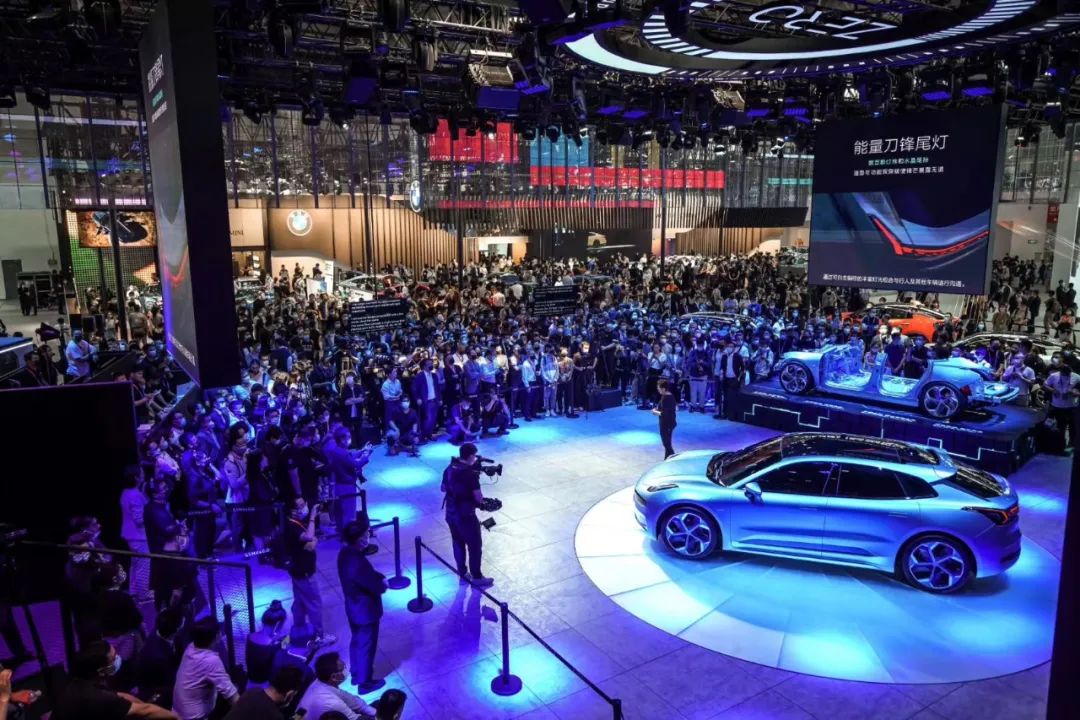Chinese EVs take centre stage at the first post-COVID motor show
The capital’s biennial car show opened yesterday until May, underscoring China’s dominant role in the EV market. In Europe, EU authorities want to stop it, but Chinese vehicles are ready to take on European markets. With competition fiercer as ever, most manufacturers are losing in the price war.
Beijing (AsiaNews) – The biennial Beijing International Automotive Exhibition officially opened yesterday after a break of four years due to the COVID-19 pandemic.
In the electric vehicle (EV) industry, Chinese carmakers are leading the way, with the latest models reflecting the country’s status as the world's largest market for motor vehicles. At the same time, the same carmakers are focusing on the all-electric concept with 278 new energy vehicles (NEVs) going on display, organisers said.
Currently, China’s EV makers are playing a leading role thanks to their huge production capacity, making China the largest vehicle exporter. In fact, EV sales in China reached a milestone in April, with more than half of all cars sold across the country.
While all eyes are on Chinese carmakers, foreign automakers are scrambling to adjust their strategies to China’s market. And Beijing’s auto show is the most important venue to display new models with the latest innovations.
For Chinese carmakers, middle class byers are the main sales target group while expanding and diversifying market share for lower-priced vehicles.
One of them, BYD, the world's largest EV manufacturer, is promoting its premium brands, with the primary goal of shedding its image as a manufacturer of low-cost vehicles.
Xiaomi, one of China's largest phone manufacturers and a newcomer to the EV market, has launched its first exhibit at the auto show with a new sports sedan model. Its chief executive, Lei Jun, announced an aggressive plan to expand production capacity and sales network.
Chinese automakers are touting their smart driving technology and competing with Tesla.
BYD announced plans to launch revamped models equipped with self-developed advanced driver assistance system. Chinese companies like Seres and Chery are working with Huawei to produce new models with smart driving system.
Meanwhile, the European Union is investigating Chinese EVs for possible subsidies and protective measures, and may impose tariffs. Indeed, the flood of Chinese EVs in European markets is one of the main issues in the trade dispute between Beijing and Brussels.
Chinese EV imports have overwhelmed the logistics systems of some European ports, like Antwerp and Bremen, with wharfs turned into huge parking lots for unsold Chinese vehicles.
What is more, China's most ambitious carmakers are moving production to Europe.
Chery plans to use its recently-acquired Barcelona plant as its main facility for worldwide exports. BYD is building a plant in Hungary. Leapmotor wants to partner with Stellantis to make its models in Turin, while several Chinese automakers are negotiating with Italian authorities about new plants in Italy.
For its part, US-based Tesla decided not to be present at the Beijing auto show this year. In 2021, a woman staged a protest at the Shanghai event, complaining that a malfunctioning brake caused an accident. Tesla only has 8 per cent share of China’s NEV market while the leader, BYD, tops 30 per cent.
Foreign carmakers have been at converting to electric vehicles. This year, General Motors scrapped traditional engines for the first time at an auto show. Mercedes Benz put on display some electric vehicles for the event in the Chinese capital.
To enter China’s market, some foreign companies are investing in local production and research to provide vehicles tailored to Chinese motorists.
As new players join the fray, competition in China’s market is getting fiercer than ever. Tesla sparked a price war, followed by a wave of price cuts by other automakers. However, as EV sales reach record levels, profit margins are steadily decreasing.
Only a few automakers, such as Tesla and BYD, are making profits, while other EV makers reported losses running in the billions of yuan last year.
18/11/2024 15:49
20/04/2021 11:39







.png)










